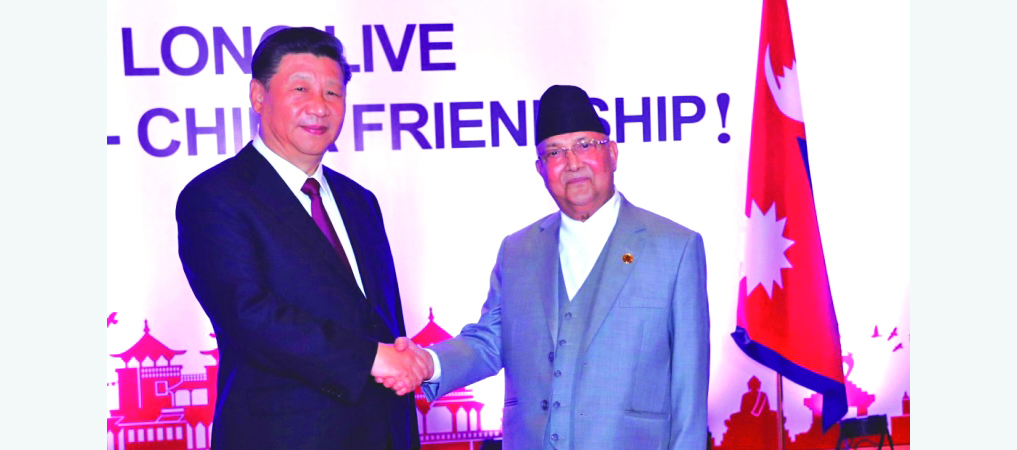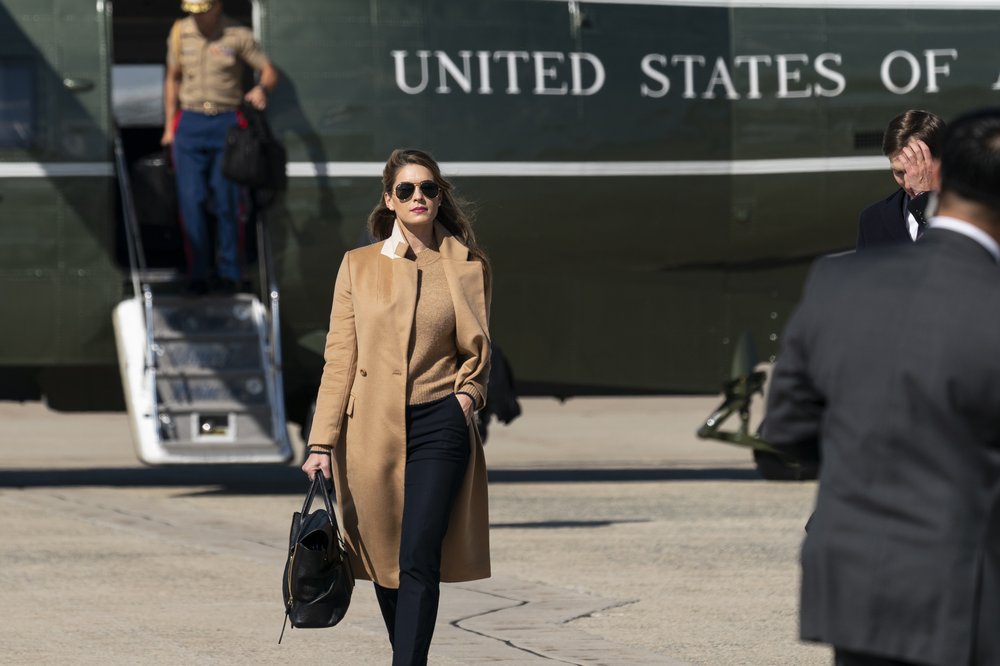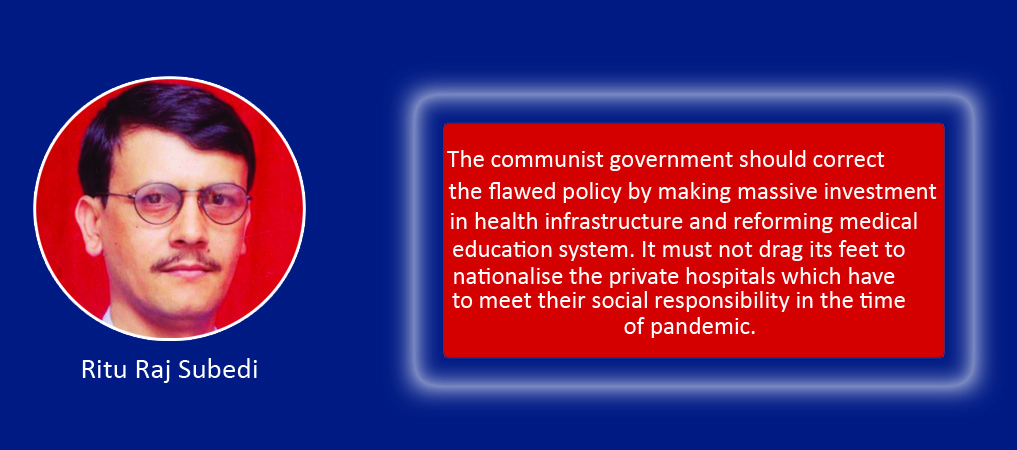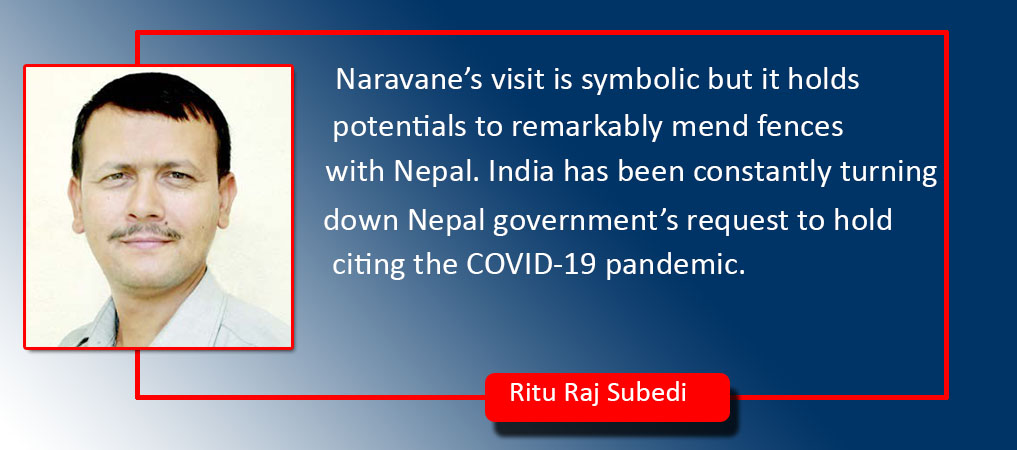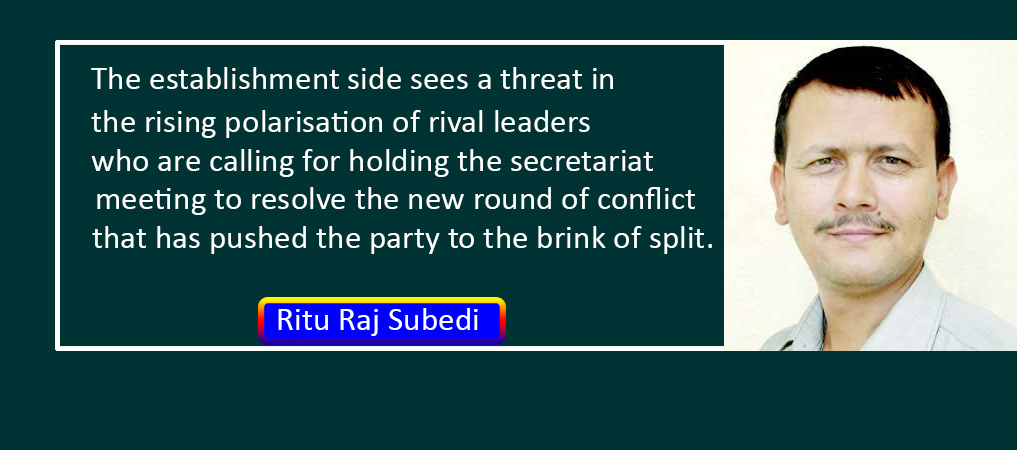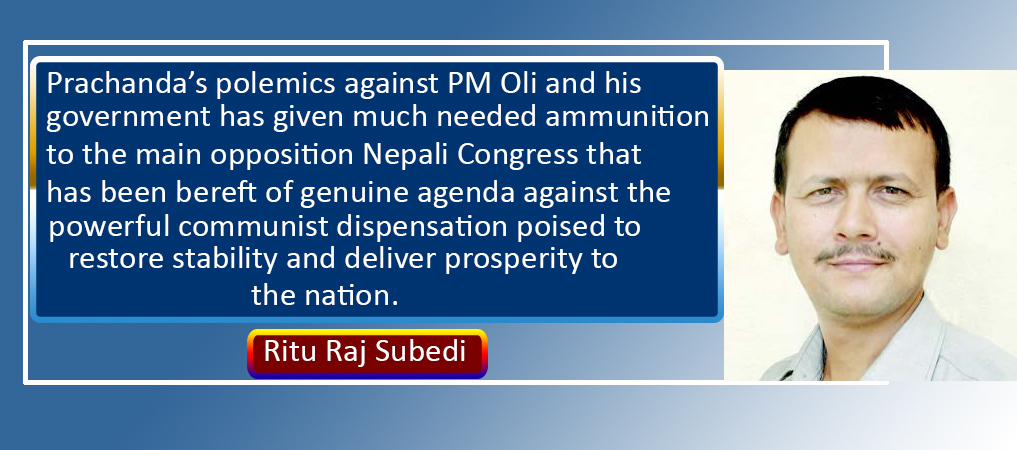Constitution Cultivates Culture Of Consensus
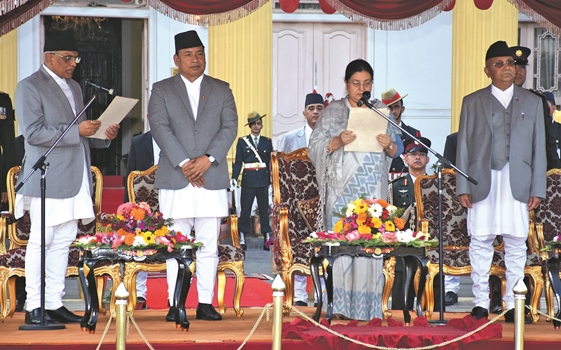
Ritu Raj Subedi
This year Constitution Day’s fervour has been dampened by the COVID-19 pandemic that has turned the normal life across the globe upside down. The government has decided to mark the occasion modestly, organising indoor programmes and activities owing to increasing threat of virus. No matter how adverse the situation is, the spirit of Constitution Day can hardly take a knock. The Constitution of Nepal, 2015 is the first national charter written by the elected Constituent Assembly. It reflects the hopes, dreams and aspirations of Nepalis. Five years on, the constitution has expanded the scope of grassroots democracy and empowered citizens, enabling them to take informed choices and take rational stand on national issues.
The constitution had announced Nepal as federal democratic republic, consolidating the achievements of all past democratic movements and revolutions spanning over seven decades. Since the unification of Nepal in 1768 AD, the precious time of nation-building was consumed by fatal fighting among the powerful courtiers, conspiracies and coups, with autocratic rulers concentrating power and resources in their own hands. As the country came under the despotic rules for a long time, the modernisation and democratisation process was halted. Nepali people had to fight for freedom and equality time and again, which badly held back its industrialisation process and development endeavours.
Inclusive Charter
The new constitution seeks to make up the lost moments of history in a bid to bring qualitative changes to Nepalis desirous of living a life of dignity, affluence and happiness. It has clearly offered a roadmap of building an inclusive and prosperous Nepal where the people of all castes, creeds and classes exercise their democratic rights to become the master of their own destiny. KP Sharma Oli-led government, formed in February 2018, won historic mandate to implement the landmark constitution that adopted federalism to carry out drastic administrative restructuring, thereby devolving power, promoting participatory democracy and mobilising resources judiciously among the three-tier of governments. In line with the constitutional vision of building a socialism-oriented economy, the government rolled out robust social security scheme to mainly benefit the workers involved in the formal sector.
In 2017, the ruling Nepal Communist Party (NCP) had won the election on the planks of stability, prosperity and nationalism, and now it is striving to live up to these electoral promises. Its nationalistic ingenuity is in conformity with the spirit of constitution: “Safeguarding of the freedom, sovereignty, territorial integrity, nationality, independence and dignity of Nepal, the rights of the Nepalese people, border security, economic wellbeing and prosperity shall be the basic elements of the national interest of Nepal.” Article 5 (1)
The Oli government has gritted its teeth and unveiled new map incorporating Kalapani, Lipulek and Limpiyadhura located in far north-west of Nepal. These Nepali territories have been occupied by India since early 1960s. No previous government had shown guts to defend and return the national territories erroneously left out in the past maps. This is the historic move towards protecting territorial integrity defying the bullying and hegemonic behaviour of the southern neighbour.
As per the statute, the government has followed independent foreign policy based on the UN Charter, nonalignment, principle of Panchasheel, international law and norms. Under the Oli dispensation, Nepal has been visible in the international arena. It has gained geopolitical traction with big powers such as the US and China paying greater attention to enhancing bilateral cooperation and supporting its economic development. This new geopolitical leverage can be propitious in pushing prosperity agenda.
The constitution has encouraged the culture of consensus among the parties with diverse ideological backgrounds. It is a good trend that Nepal’s political parties consult and share their views with each other when the country face big political, diplomatic and economic crisis. There is a practice of broad-based discussions at the all-party meeting usually called by the Prime Minister. The political parties, including ruling and opposition come together to find a common ground to solve the national problems. For example, all Nepal’s political parties had taken unified stand to take back the encroached land in the far-west Nepal. This shows the growing maturity in Nepali politics nourished by the inclusive constitution. The government also sought views of opposition and other forces to fight the COVID-19 pandemic that brought the economy to its knees with the prolonged lockdown and strict prohibitory measures.
The constitution has encouraged the right-oriented attitude and activities, fuelling protests for justice and good governance. Hundreds of youths take to streets to compel the government to get tough with the corrupt persons as well as culprits involved in the gender violence. The constitution has spelt out 31 fundamental rights and four duties of the citizens. It is indeed a challenge to balance between the rights and duties in a country whose economy is sustained by remittances and foreign assistance.
Bottom-up Approach
Nepal’s administrative arrangement is based on the three-tier governing units- federal, state and local. The federal design strengthens shared and self-rule, ensuring the participation of the people living on the bottom layer of society. During the pandemic, the local bodies played their critical role in setting up quarantines and conducting testing and tracing of people suspected of virus infection. This is one of the brighter sides of federal system wherein the elected local units prove their mettle when they are granted constitutional rights and powers.
However, there is equally a worrisome scenario – many local units are mired into fiscal corruption and other scandals, with the elected representatives acting in collusion to plunder the tax payers’ money. This corrupt practice must end to make federalism sail smoothly. It is not only the lower rung of federal structure but also its top political leadership that must imbibe democratic character and norms. The top-down approach is getting entrenched while the bottom-up decision-making process has grossly been ignored. Democracy flourishes only when citizens have a say in the matters that have direct bearing on their life. The cardinal values of constitution deepen only when leadership acts responsibly and give full-hearted commitment to its implementation.
(Deputy Executive Editor of The Rising Nepal, Subedi writes regularly on politics, foreign affairs and other contemporary issues. subedirituraj@yahoo.com)
Recent News

Do not make expressions casting dout on election: EC
14 Apr, 2022
CM Bhatta says may New Year 2079 BS inspire positive thinking
14 Apr, 2022
Three new cases, 44 recoveries in 24 hours
14 Apr, 2022
689 climbers of 84 teams so far acquire permits for climbing various peaks this spring season
14 Apr, 2022
How the rising cost of living crisis is impacting Nepal
14 Apr, 2022
US military confirms an interstellar meteor collided with Earth
14 Apr, 2022
Valneva Covid vaccine approved for use in UK
14 Apr, 2022
Chair Prachanda highlights need of unity among Maoist, Communist forces
14 Apr, 2022
Ranbir Kapoor and Alia Bhatt: Bollywood toasts star couple on wedding
14 Apr, 2022
President Bhandari confers decorations (Photo Feature)
14 Apr, 2022



